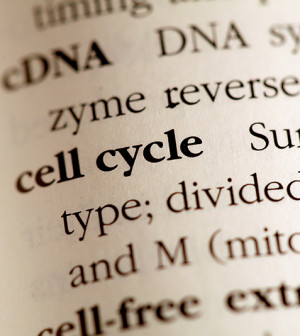- Could Your Grocery Store Meat Be Causing Recurring UTIs?
- Are You Making This Expensive Thermostat Error This Winter?
- Recognizing the Signs of Hypothyroidism
- 10 Strategies to Overcome Insomnia
- Could Artificial Sweeteners Be Aging the Brain Faster?
- Techniques for Soothing Your Nervous System
- Does the Water in Your House Smell Funny? Here’s Why
- Can a Daily Dose of Apple Cider Vinegar Actually Aid Weight Loss?
- 6 Health Beverages That Can Actually Spike Your Blood Sugar
- Treatment Options for Social Anxiety Disorder
New Parents Favor In-Depth Genetic Testing, Survey Finds


Many American parents would be interested in having their newborn baby undergo in-depth genetic screening to learn about potential health risks, a new study reveals.
Newborns currently get a blood test to screen for at least 30 heritable, treatable conditions. But in-depth genetic screening, known as genomic testing, has the potential to provide more comprehensive personal information, according to the Boston-based researchers.
The researchers surveyed 514 parents within 48 hours of their baby’s birth. Parents were given a brief explanation of genes and how they can affect health and medical care, and then were asked what they thought about genomic testing of newborns.
Nearly 83 percent of the parents said they were either extremely (18 percent), very (28 percent) or somewhat (36 percent) interested in in-depth newborn genetic testing, the study found.
“Several other studies have measured parents’ interest in newborn genomic screening, but none focused on new parents in the first 48 hours,” senior author Dr. Robert Green, a geneticist and researcher at Brigham and Women’s Hospital and Harvard Medical School, said in a hospital news release.
“Since this is when genomic testing would be of the greatest value, it is especially important to study parents’ attitudes immediately post-partum,” he added.
The results were similar regardless of parents’ age, gender, race, ethnicity, level of education, family history of genetic disease, or whether their newborn was their first child, the researchers said.
“Parents’ strong interest in genomic screening for their newborns, as demonstrated by this study, underscores the importance of further research exploring the public health impacts of actually providing this testing,” said Green, “particularly as it continues to become less expensive and more widely available.”
Parents who’d had concerns about the health of their newborn were less likely to be interested in genomic testing, according to the study published Dec. 4 in the journal Genetics in Medicine.
More information
The U.S. National Library of Medicine has more about newborn screening.
Source: HealthDay
Copyright © 2026 HealthDay. All rights reserved.










